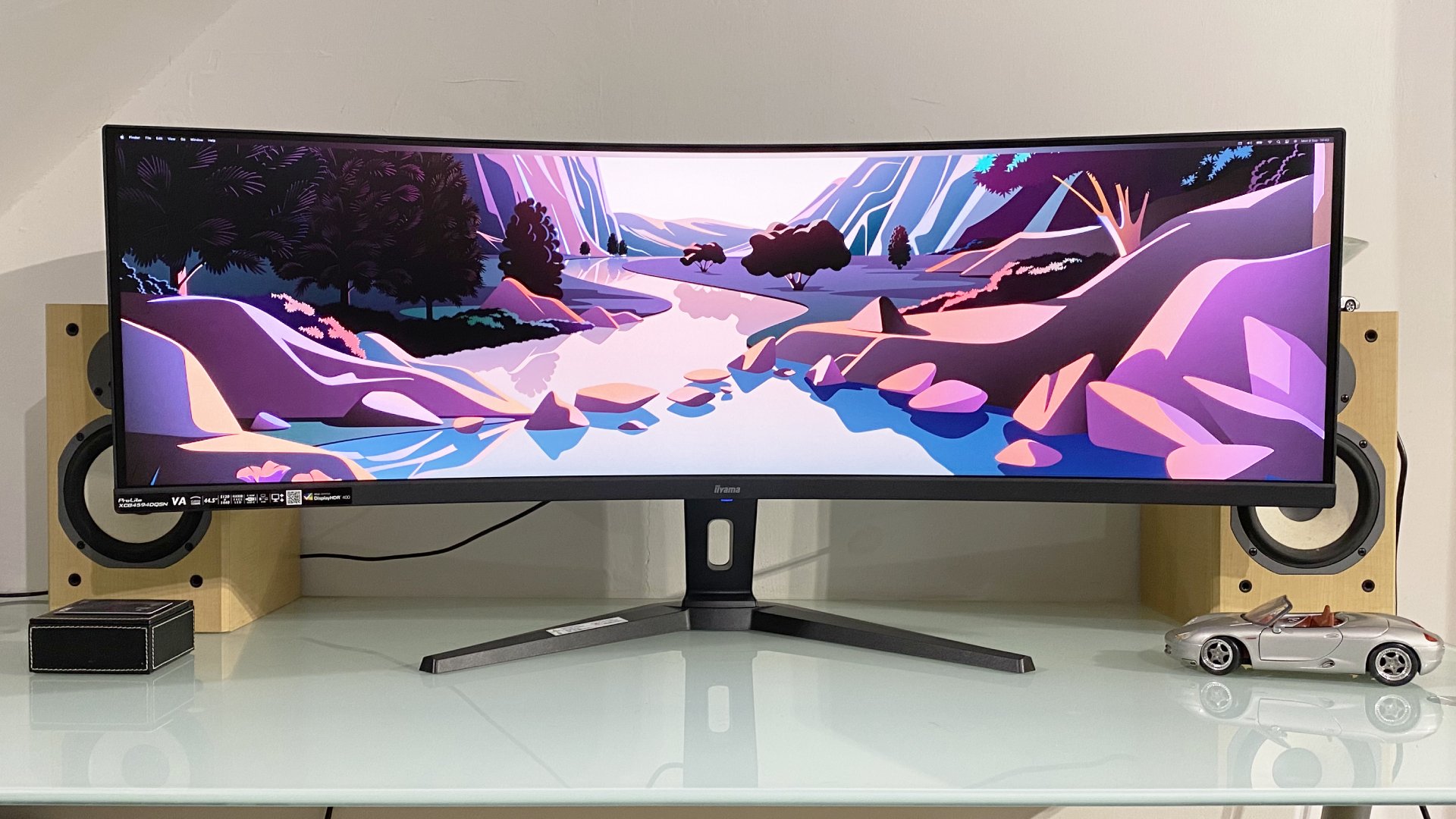
Sometimes, a tiny change can make all the difference. So it is with the Iiyama ProLite XCB4594DQSN. It's a large, 32:9 aspect ultrawide productivity monitor with a native resolution of 5,120 by 1,440. The difference is that it measures 45 inches where 49 inches has typically been the norm for the best ultrawide monitors we've reviewed.
That makes it a touch more ergonomic in terms of desk space. But it also improves the pixel density by a small but arguably critical quotient. To that you can add VA panel technology with strong all-round specifications, including 165Hz refresh and sub-1ms claimed response, plus excellent connectivity including USB-C with 90W of power delivery and a KVM switch.
All told, this new Iiyama amounts to a single monitor with the desktop real estate of dual 1440p panels, plus good connectivity. It's a very appealing proposition for anyone who needs one of the best business monitors to multitask, view several applications in parallel and generally have plenty of on-screen elbow room.
Iiyama ProLite XCB4594DQSN: Design & features
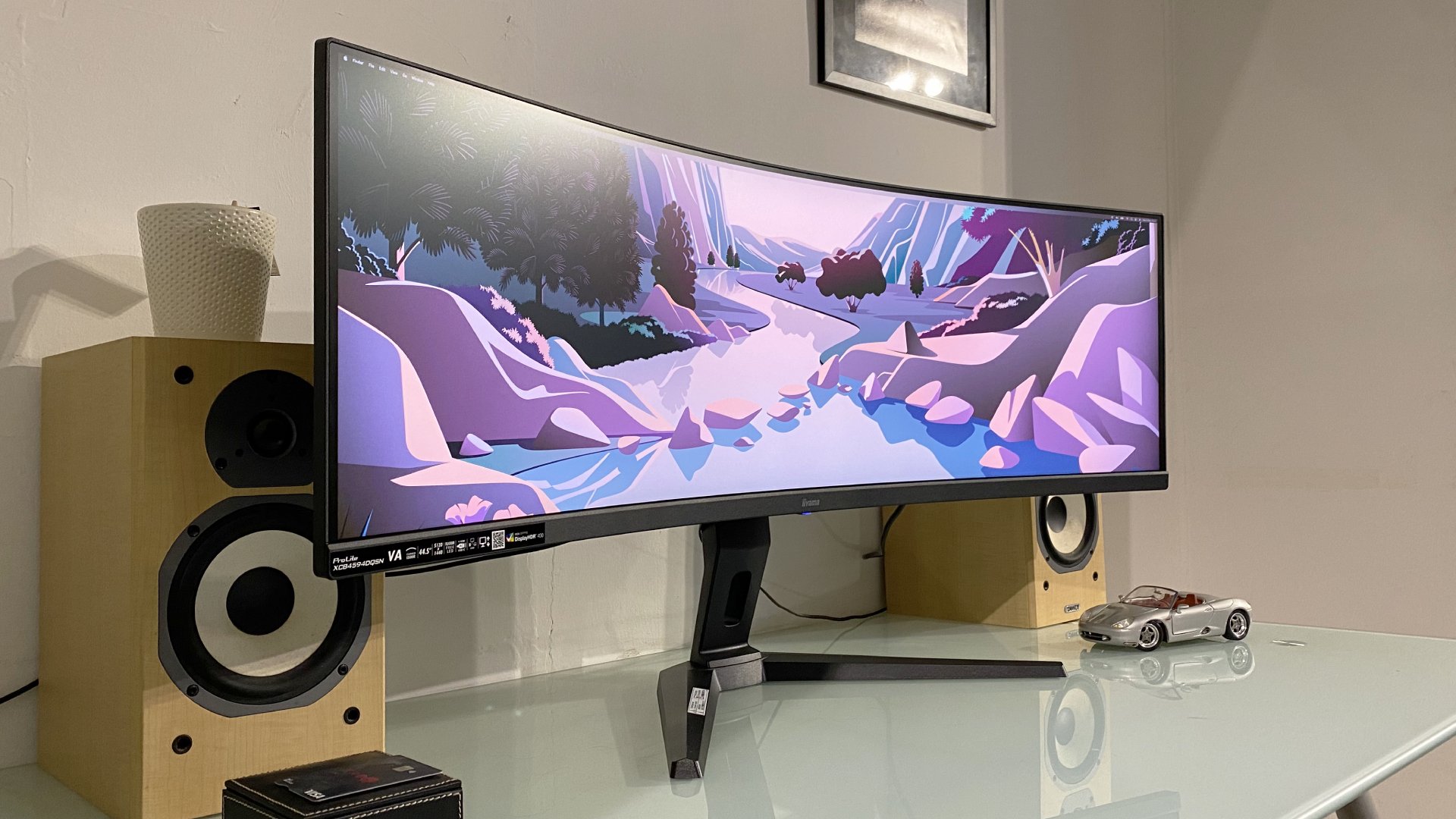
- Needs lots of desk space
- Excellent connectivity
- OSD could be more intuitive
Panel size: 45-inch
Panel type: IPS
Resolution: 5,120 x 1,440
Brightness: 450 cd/m2
Contrast: 3,000:1
Pixel response: 0.8ms MPRT
Refresh rate: 165Hz
Colour coverage: 100% sRGB
HDR: DisplayHDR 400
Vesa: 100mm x 100mm
Inputs: DisplayPort 1.4 x1, HDMI 2.0 x1, USB-C with 90W power delivery x1
Other: USB-A hub, LAN, KVW switch
Iiyama doesn't traditionally go in for aesthetic theatrics, and that's no different for the Iiyama ProLite XCB4594DQSN. Sober suited, you could say anonymous, albeit with slim bezels on three sides that add a contemporary air, it's nevertheless well-built and has all the features you'll likely want for a high-spec productivity monitor.
The stand offers a good array of adjustment, including height and tilt, plus a touch of pivot to help get the horizontal level just right, though the lack of swivel is a disappointing omission. Still, it's good to have decent adjustability on a 45-inch panel like this where the sheer size alone makes for challenging ergonomics.
On the subject of size and scale, this is a curved panel but courtesy only of a relatively gentle 1500R arc. With such a large wide-aspect format, a little more curve would arguably make viewing the furthest extremities a bit more comfortable.
As for connectivity, that's the real highlight. For starters, you get USB-C with 90W of power delivery for effortless single-cable connectivity of a laptop. There's also a triple-port USB-A hub. Thus with the single cable you can not only drive the display and keep a laptop charged, but also connect peripherals like keyboard, mouse and external storage.
Even better, there's a LAN port, too, enabling comprehensive connectivity through that single port. Once you've gone single-cable, you won't want to go back to that old rat's nest of cables. The USB hub also allows for support for KVW switch capability, so you can easily share this display and any connected peripherals across two PCs.
Those highlights aside, the rear of the display also includes a pair of HDMI ports and DisplayPort, all of which support the full 5,120 by 1,440 resolution at 165Hz. The catch? All these various connectivity features are harder to set up than need be.
Iiyama has chosen some suboptimal default settings, for instance, which means you'll have to spend a fair amount of time in the unfriendly OSD menu just to get this monitor running at the right resolution and refresh over various inputs. Once you've got everything configured correctly, it's all good from there. But Iiyama would do well to look again at the OSD and default settings.
Iiyama ProLite XCB4594DQSN: Performance
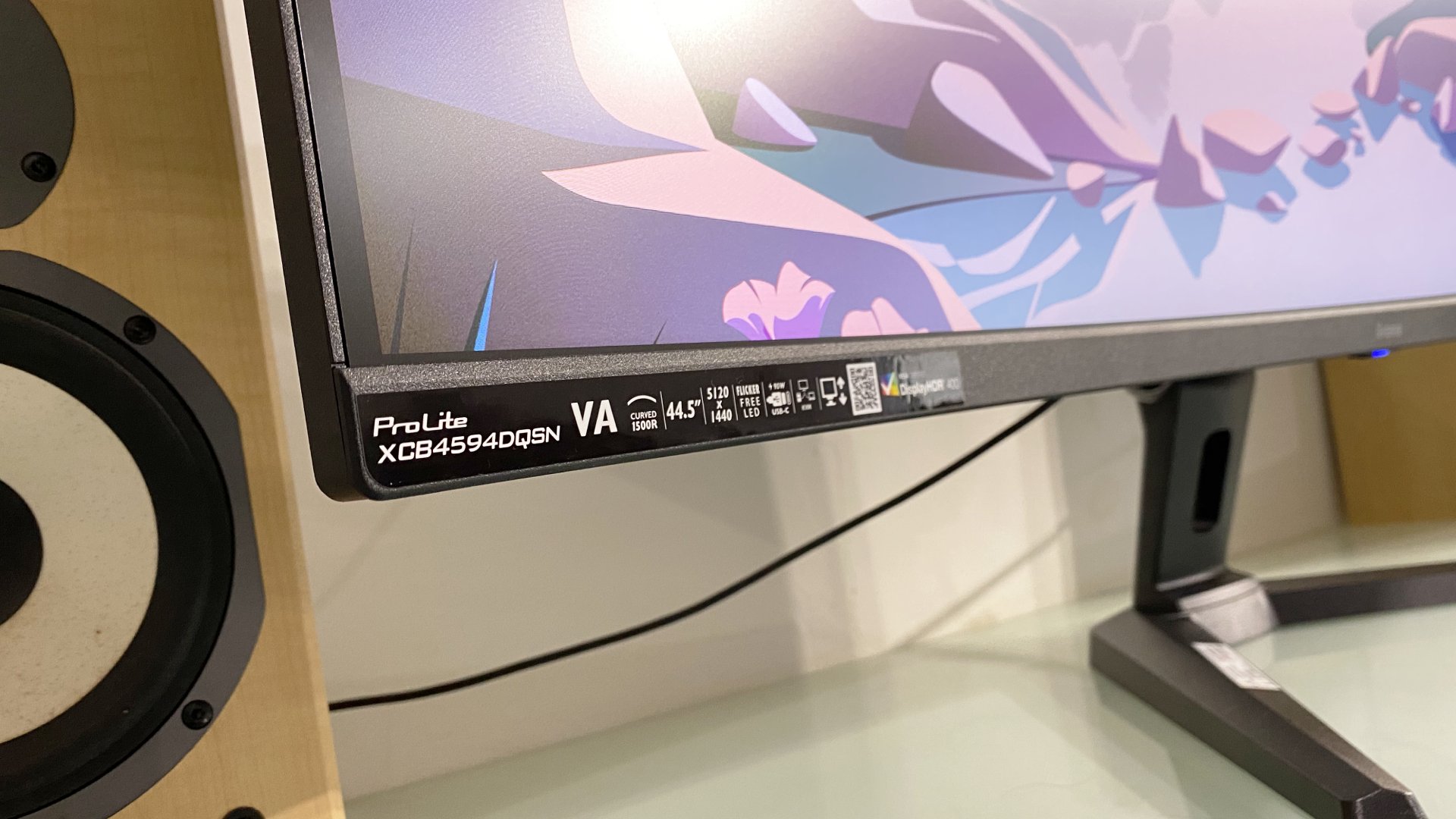
- Punchy, quick VA panel
- Decent pixel density
- Limited HDR support
We've seen plenty of 49-inch panels with the familiar if still spectacular 5,120 by 1,440 pixel native revolution. The difference here is that the Iiyama ProLite XCB4594DQSN is a 45 incher.
That obviously makes it a touch smaller while still being a very expansive display. It also bumps the pixel density up from 108 DPI to 118 DPI compared to those 49-inch panels. That isn't a dramatic improvement. But it's just enough to make a visible difference to the crispness and quality of fonts.
For sure, a 27-inch or even 32-inch 4K monitor has much better pixel density again. But the increase to nearly 120DPI definitely helps and is particularly noticeable in MacOS, which arguably benefits even more from the DPI bump than Windows. That detail aside, this is a very nice example of the VA breed of LCD panel. It's very punchy, with a brightness rating of 450 nits, and boasts excellent contrast.
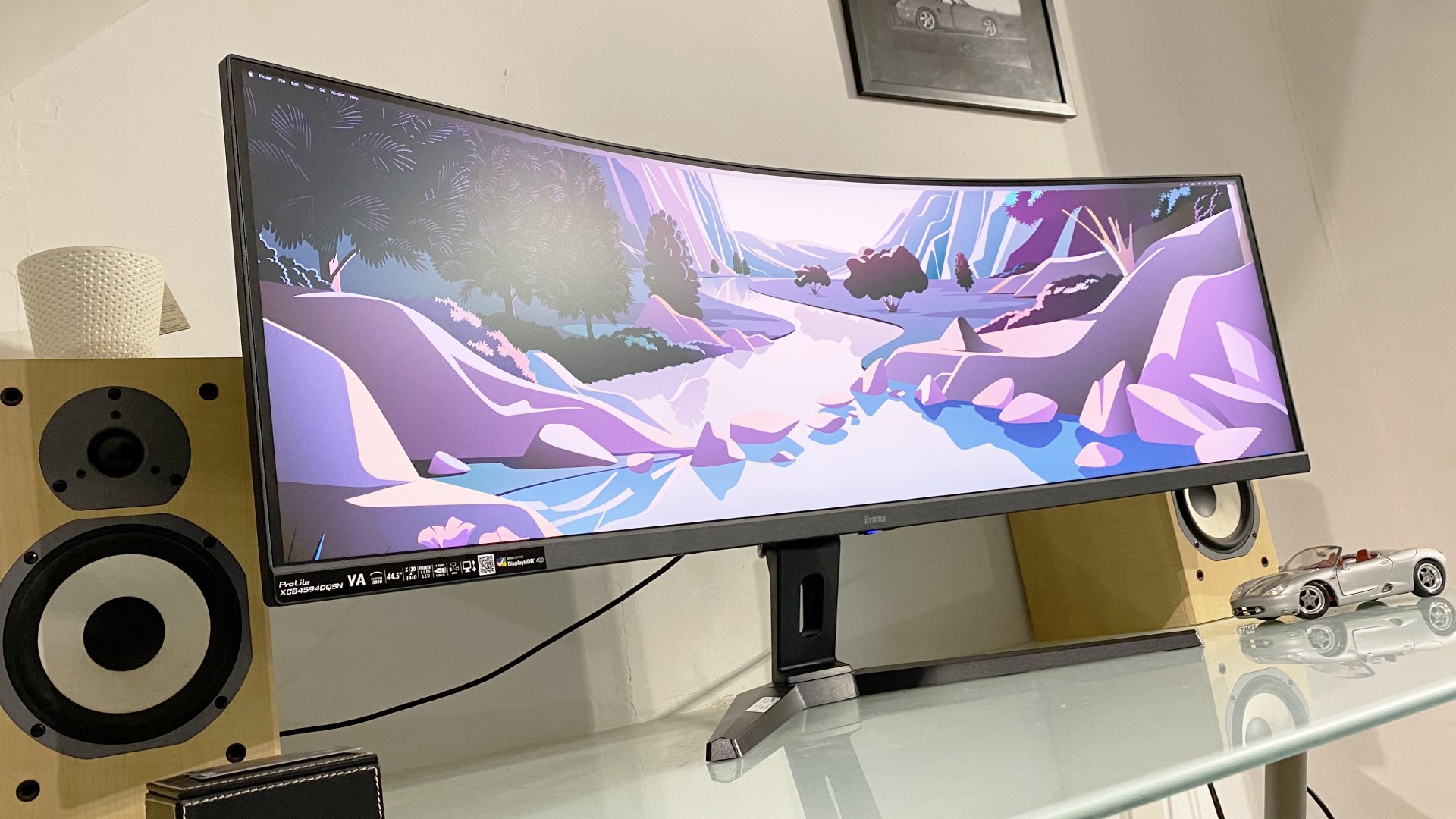
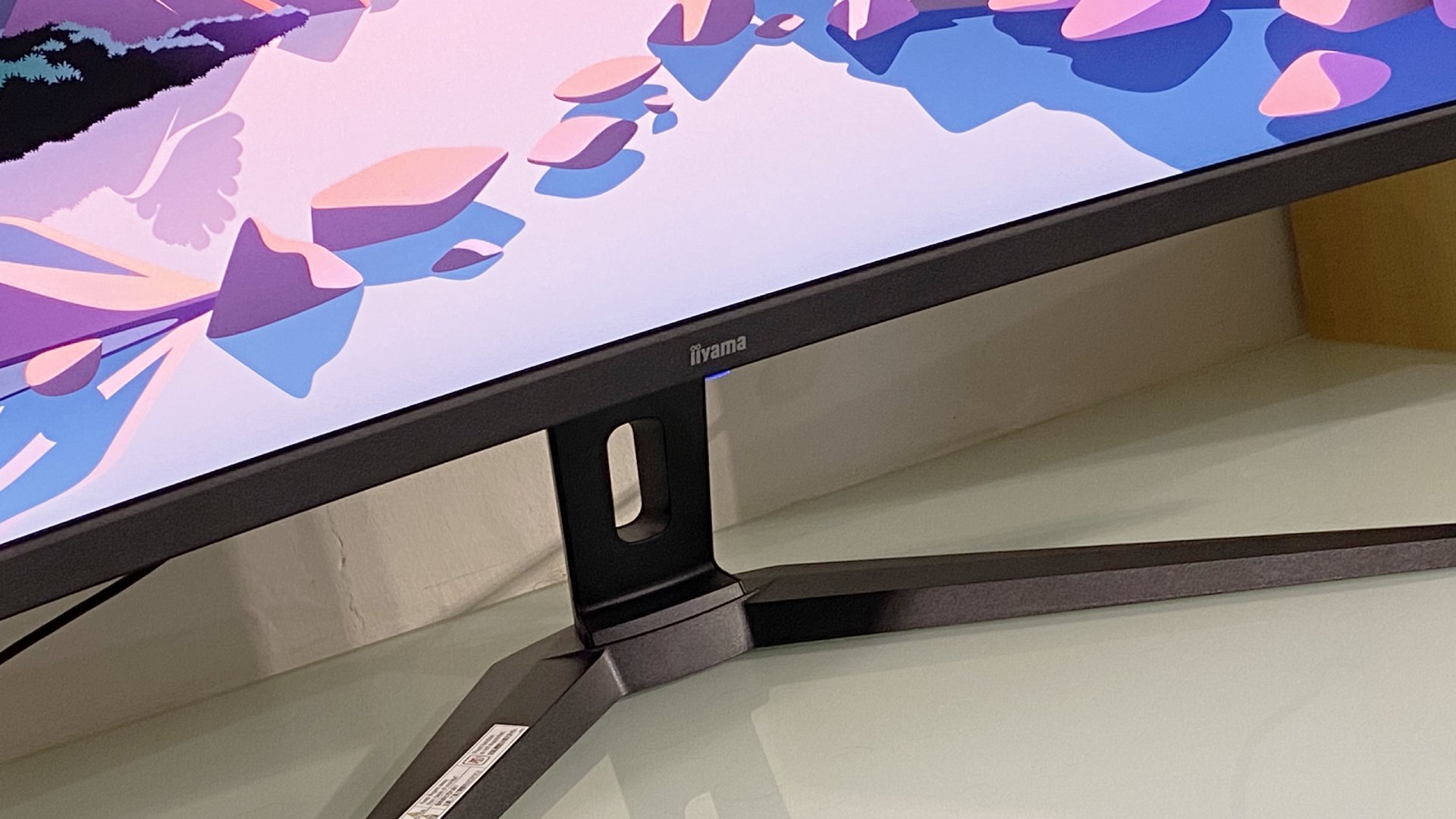
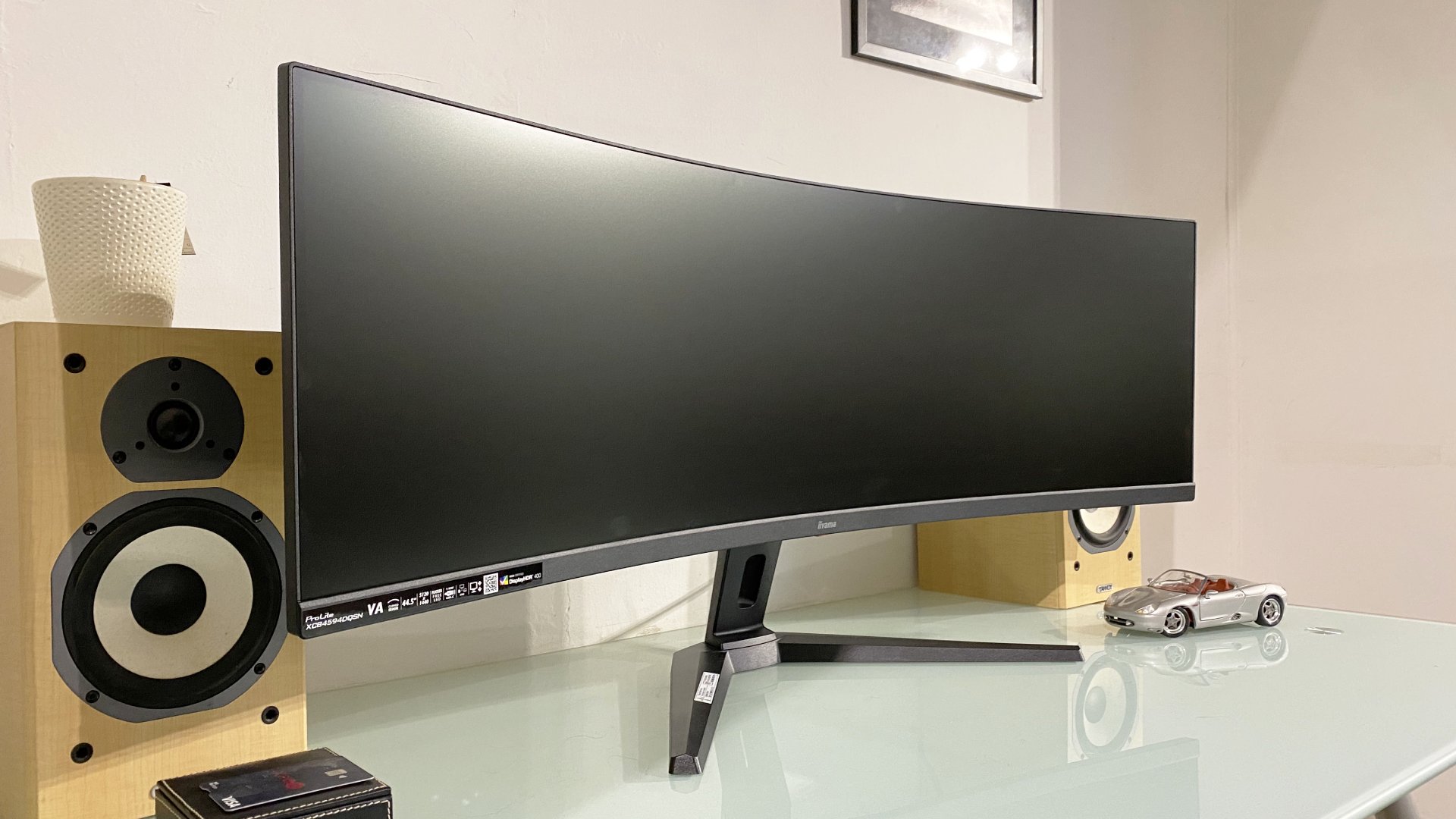
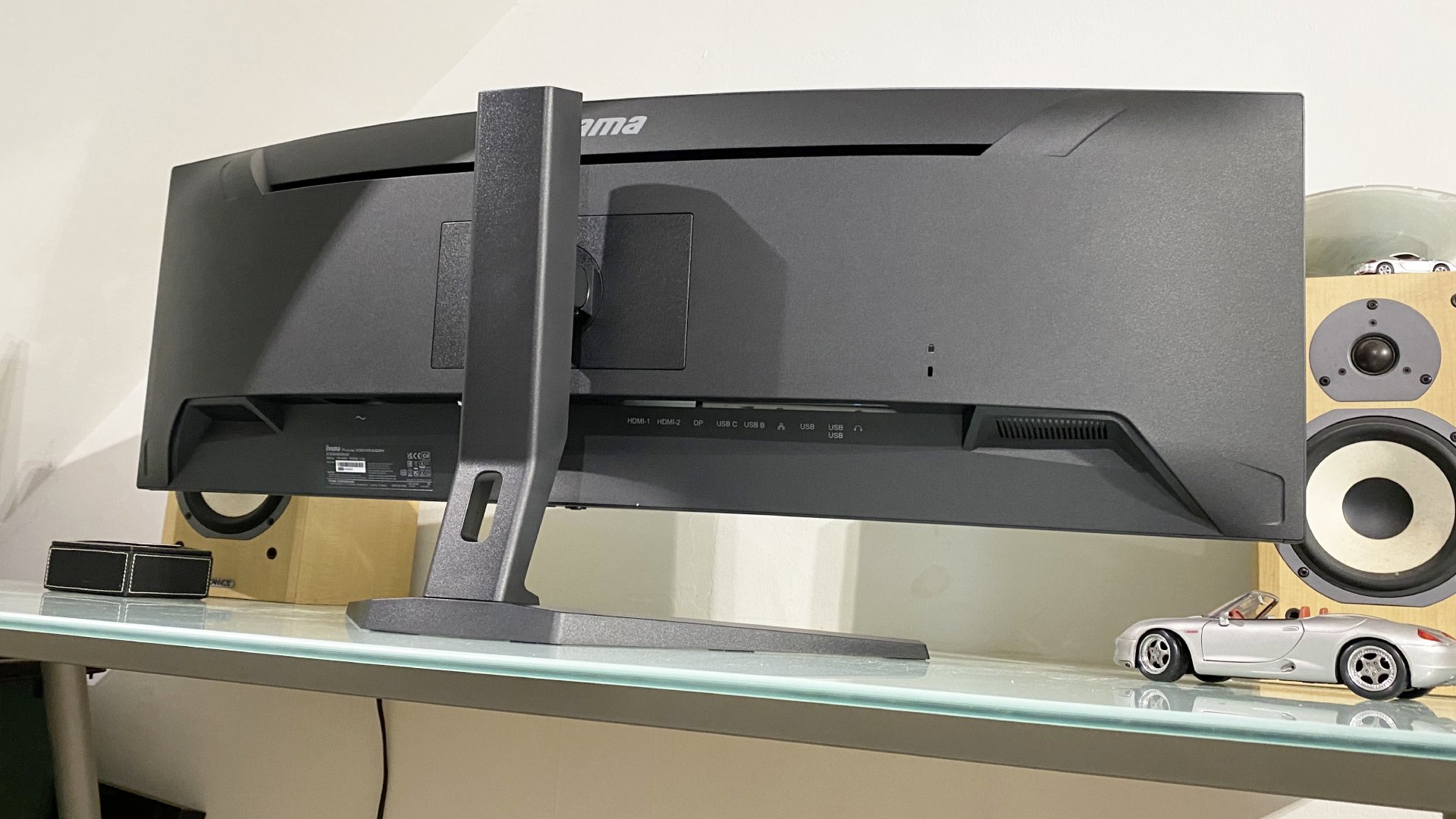
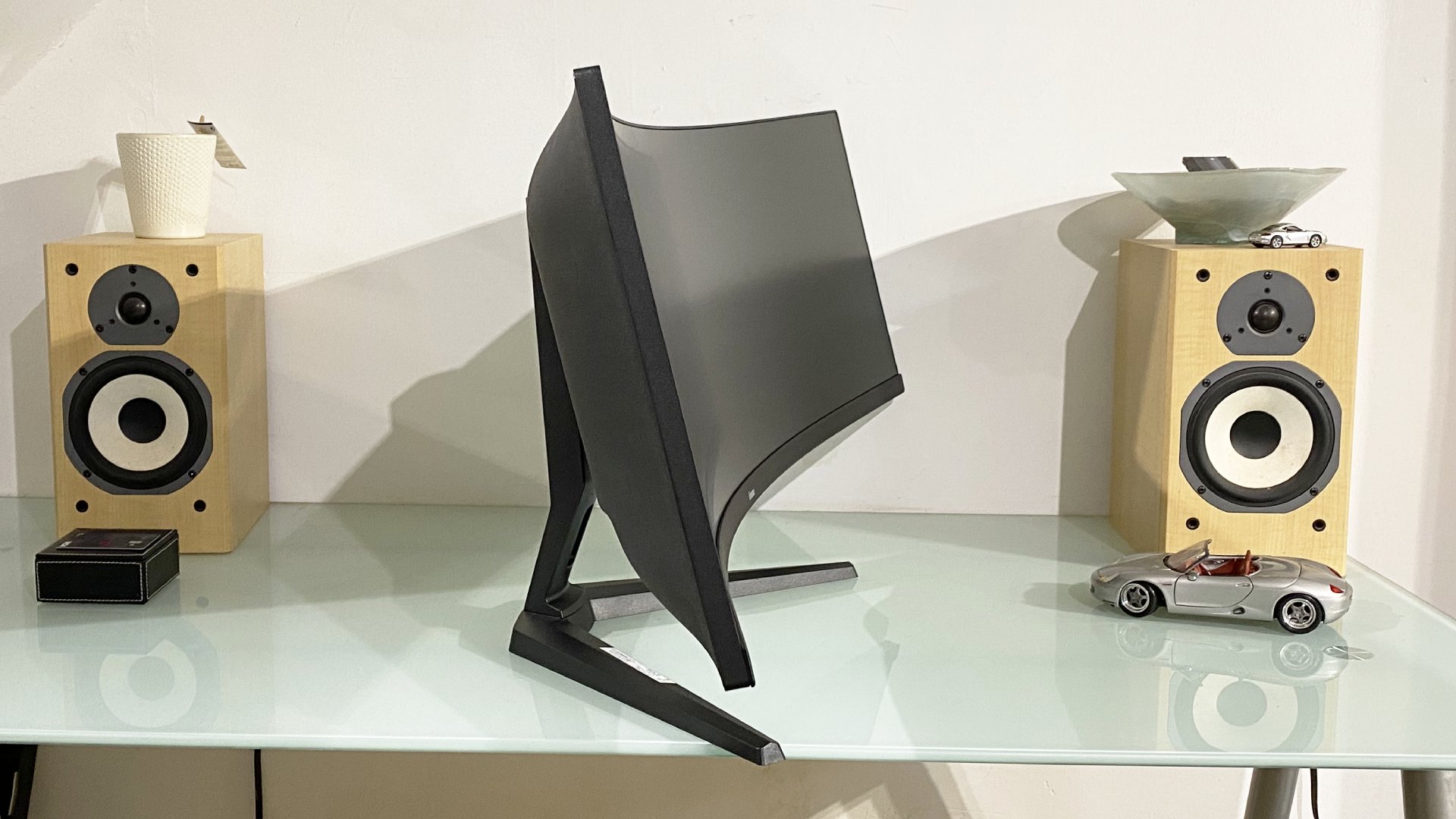
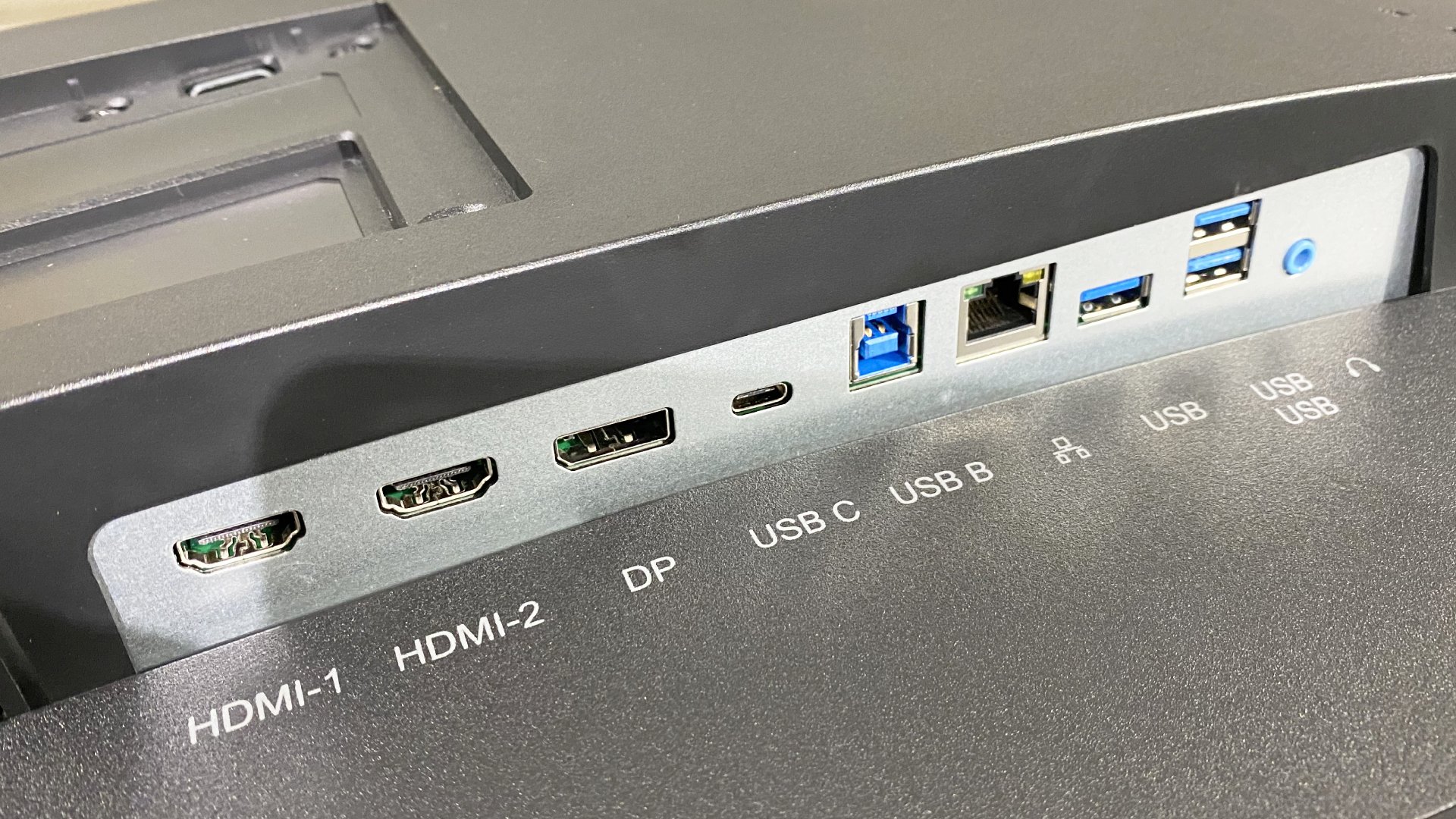
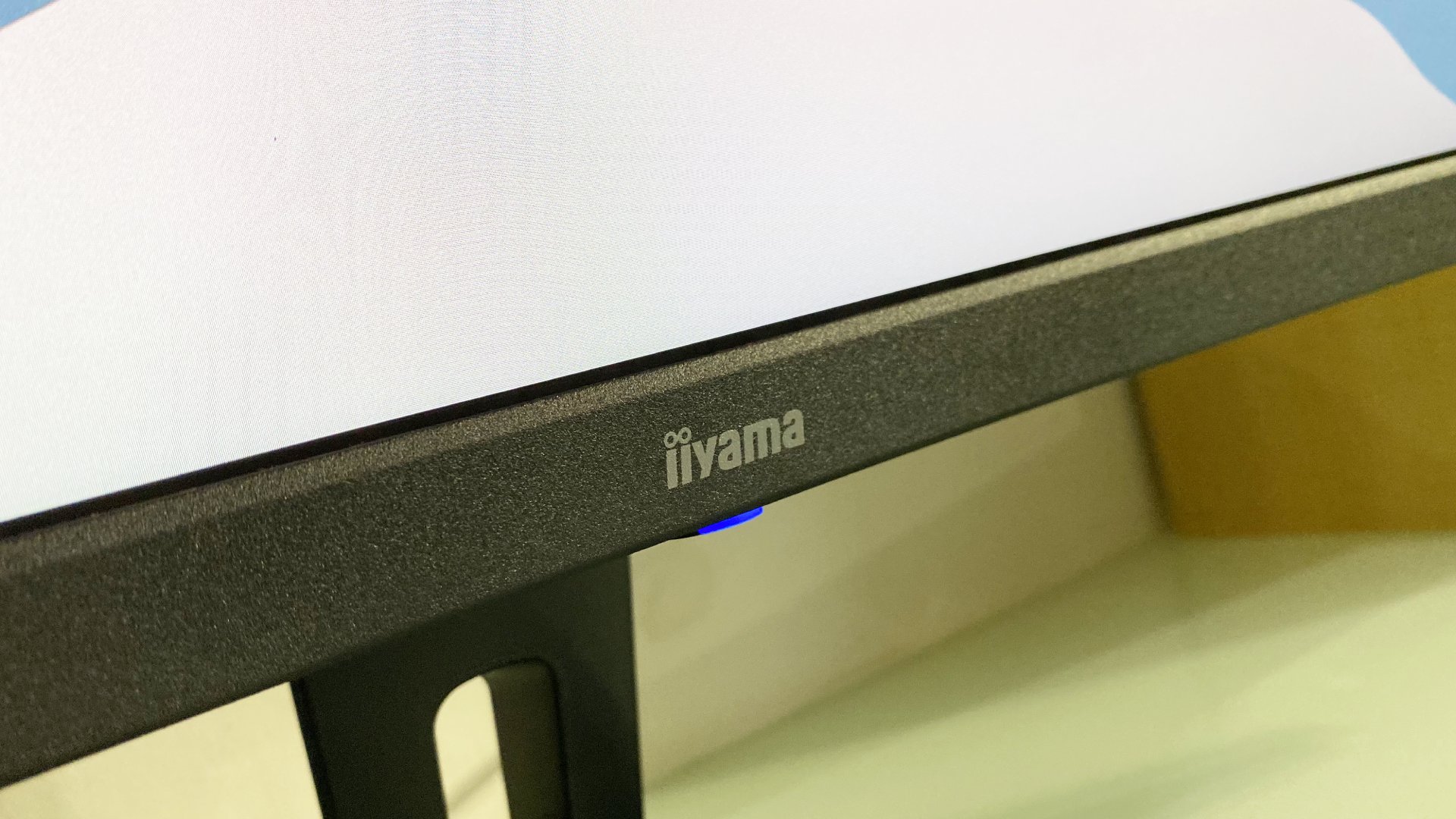
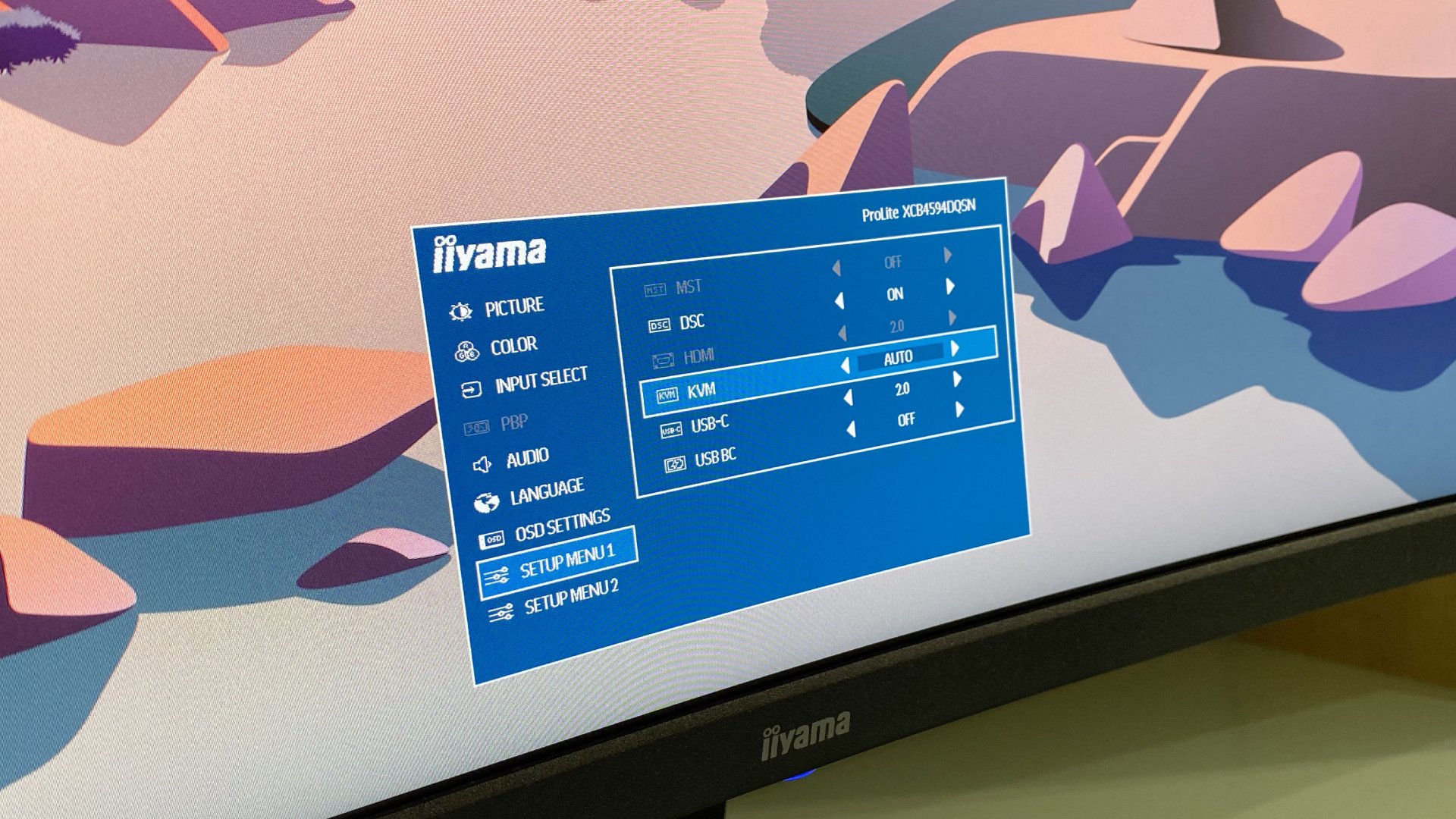
It's nicely calibrated, too, albeit this isn't a panel aimed at content creation pros and doesn't offer pre-calibrated Adobe RGB or DCI-P3 modes. Overall, this is a really vibrant, pleasant display. OK, it's no OLED panel. But then you'd be looking at far, far more money for an equivalent OLED monitor.
Speed-wise, this panel will almost certainly be plenty quick enough for most users. The 165Hz refresh ensures nice, low latency and the 0.8ms response spec is impressive. That said, there is some noticeable overshoot with the response-accelerating overdrive feature set to one of its more aggressive modes. It's not a huge problem, but if you're sensitive to that kind of thing, an IPS panel remains a better option.
Another relative weakness is HDR support. For starters, this isn't a true HDR panel. It offers basic HDR signal processing. But there's no local dimming, so the ultimate dynamic range is limited. Iiyama likewise hasn't done a great job of calibrating SDR content in HDR mode. So, you'll really need to jump between SDR and HDR modes depending on content types, which is a bit of a pity.
Iiyama ProLite XCB4594DQSN: Final verdict

The Iiyama ProLite XCB4594DQSN doesn't do anything radical. However, the large panel and ultrawide format makes for an extremely effective productivity tool. For sure, it's an intriguing alternative to a pair of 1440p monitors.
The 45-inch as opposed to 49-inch diagonal also makes for slightly improved pixel density and font rendering. That also applies to the comparison with more conventional 27-inch 1440p monitors. This Iiyama is just that little bit crisper while still providing a huge canvas for multitasking.
The actual panel quality is good, too, with a slick 165Hz refresh and fairly speedy responses for a VA panel. Factor in the 450 nit brightness and basic HDR support and this panel is well up for some multimedia and games on the side.
Connectivity is another strong point, with USB-C, LAN and a KVM switch. All told, this is a genuine productivity powerhouse and the only obvious snags are a slightly frustrating OSD menu and some poorly chosen default settings, none of which are enough to spoil what is otherwise a strong overall package.
For more pin-sharp displays, we tested the best monitors for MacBook Pro.







